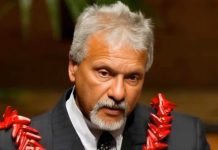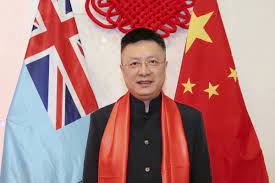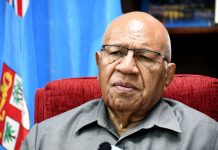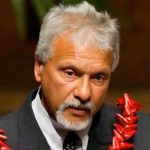China has named a special envoy to fill a new role in its Pacific Islands diplomacy as it competes with the United States for influence in the region.
Qian Bo, former China’s ambassador to Fiji since 2018, was appointed as the first special envoy of the Chinese government on Pacific Islands affairs, foreign ministry spokesman Wang Wenbin announced last Wednesday.
Wang said Beijing hoped Qian could enhance exchanges and cooperation between China and Pacific Island nations and work to promote the development of their comprehensive strategic partnership.
The new post is an upgrade from Beijing’s special envoy to the China-Pacific Islands Forum (PIF) Dialogue – a position that has existed since the 2000s. The PIF is a regional organisation that includes Pacific Island nations as well as Australia and New Zealand.
China only appoints permanent special envoys for regions or issues of particular interest or concern, such as the Korean peninsula, Horn of Africa, Middle East, Afghanistan, Syria and climate change.
Some of them, such as the representative for the Horn of Africa, hold the title “special envoy of the Ministry of Foreign Affairs”, as they typically focus on traditional diplomatic matters.
Unlike the previous role for the PIF, the new title is “special envoy of the Chinese government”.
This suggests Qian, as a representative of the entire government, will work as a coordinator across different ministries and departments of the State Council, enabling him to strengthen collaboration to address more complex and substantial issues, said Wang Yiwei, an international relations professor at Renmin University in Beijing.
“It reflects the increased importance that the Chinese government attaches to the affairs of this region,” he said.
State Councillor Wang Yi, now China’s top diplomat, promised to elevate the role of Beijing’s envoy to the South Pacific during his visit to the region in May and June.
China has significantly increased its presence in Oceania over the past two decades. It has become a major trading partner and investor in the region while courting several island nations through engagements and frequent visits by senior officials.
In the past, the Pacific Islands’ importance to Beijing was mainly that it was an arena to compete for diplomatic recognition with Taipei, said Wang of Renmin University.
Beijing regards Taiwan as a breakaway province and makes the one-China principle, which says countries must not have official relations with Taiwan, a precondition of diplomacy.
There are only 14 countries that maintain formal diplomatic relationships with Taiwan, four of which are Pacific Island nations: the Marshall Islands, Nauru, Palau and Tuvalu.
Kiribati and the Solomon Islands shifted their ties from Taipei to Beijing in 2019. Last March, Beijing signed a security cooperation agreement with the Solomon Islands.
The region is rising in geopolitical significance as two great powers on opposite sides of the Pacific Ocean compete for influence.
Last year’s security deal between China and the Solomon Islands irritated the US, which had closed its embassy there in 1993 and had not sent a secretary of state to the region in 37 years. The pact also irked Australia, which views the South Pacific as its security sphere.
Washington reacted by immediately dispatching senior officials to the Solomon Islands and neighbouring countries.
U.S President Joe Biden hosted the first U.S-Pacific Islands Country Summit in September. He invited leaders from 12 countries to attend the summit and pledged US$810 million in economic aid for countries in the region.
Just after the summit, the Biden administration unveiled the first U.S Pacific Partnership Strategy, which warned that “pressure and economic coercion” by China risked undermining the peace, prosperity and security of the region and the U.S.
To counter China and increase American diplomatic presence in the region, Biden announced Washington would open new embassies in the Solomon Islands, Kiribati and Tonga, increasing the number of US embassies in the Pacific Islands from six to nine.
Biden also appointed the first U.S envoy to the PIF in September – three months after top diplomat Wang talked about establishing an upgraded special envoy post for the region.
China has diplomatic relations with 10 Pacific countries and embassies in eight of them, including the three where the U.S announced it would open embassies.
“The U.S mindset is that it can never let China make the rules and export influence and ideology,” Wang Yiwei said.
“These Pacific Islands are part of the U.S global strategic alliance system, and containing China in the region is also a request of its regional allies like Australia,” he said.
SOURCE: SOUTH CHINA MORNING POST/PACNEWS














